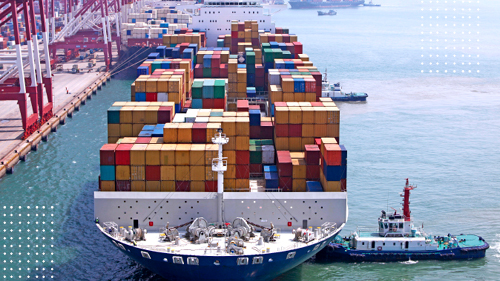How Cargo Insurance Safeguards Your International Shipments
08/06/2020

While a shipment of printers was awaiting a connecting flight in an air carrier’s warehouse, a fire broke out from lightning striking electrical power plugs. The warehouse and its contents, including this shipment, were severely damaged.
The cause of this loss was lightning, which is considered an Act of God. As a result, the air carrier was not liable. “All-Risk” cargo insurance provided full coverage for the loss.
Claim Amount: $15,867
Insured’s Deductible: $0
How Can I Protect Myself and My Shipments?
When you buy a new house or a new car, one of the first things you think about is how to protect your purchase. It’s common to wonder, “What kind of insurance should I get? Full-coverage, liability or something in between?” The same thought process should be present with any international purchase you might make. With shippers spending thousands of dollars on a shipment that must travel thousands of miles to get from the origin to its destination, it’s crucial for shippers to insure those goods against damage, theft, pilferage, mishandling or the Law of General Average on ocean shipments.
Why Do My Shipments Need Cargo Insurance?
The purpose of cargo insurance is clear and simple – to protect the financial interests of shippers while their cargo is exposed to transit risks. Cargo insurance is a means to cover the commercial value of the shipment plus freight-related costs as well as a ten percent buffer. The coverage allows the importer or exporter the peace of mind that the associated financial burden will be eased if damage, theft, pilferage, mishandling or general average occurs to their shipment.
“All-Risk” cargo insurance provides broad coverage for shippers from Point A to Point B. Alternative coverage types include:
- Free of Particular Average (FPA): A good option for used goods, waste materials, and scrap metal, or
- With Average (WA): FPA coverage with an exceptionally heavy weather clause
Who’s Responsible for Losses Without Cargo Insurance?
Many shippers believe that their freight forwarder will cover all losses incurred for cargo moving on their house bill of lading. However, freight forwarders have a limited liability per package or bill of lading that could cover a fraction of the shipment’s total value. Without cargo insurance, the loss could be catastrophic for an importer or exporter who does not have coverage, not to mention the time it takes to pursue and follow up with the various parties involved.
In 2018, there was an average of 15 cargo theft incidents per day, with the North American Median Theft Value being $58,500. Food and Beverage, Alcohol and Tobacco, Consumer Goods and Electronics were the top commodities stolen. According to CargoNet, $5.9 million in goods were stolen throughout the 2020 Independence Day weekend, with Texas, California and Florida being the top three targeted states.
How Can I Obtain Cargo Insurance?
During the month of August, Ascent Global Logistics is launching a Cargo Insurance Awareness campaign, encouraging all our current and potential clients to review their current cargo insurance policies to ensure they are adequate to cover the potential losses in today’s marketplace.
If you are unsure whether your insurance is adequate or what coverage you might have, please reach out to your sales or operational team for a quote. Our team can help minimize the financial loss you might incur should your cargo meet a series of unfortunate events.
Who said logistics has to be complicated? We certainly didn’t. Contact our team to learn more about minimizing potential financial loss through cargo insurance.